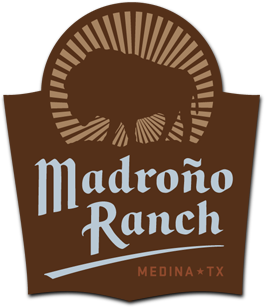When I was in seminary, my Old Testament professor Michael Floyd spent some considerable time and effort trying to disabuse us students of the thought that we were somehow more spiritually advanced than our ancient Israelite ancestors who codified the complicated instructions governing community life set forth primarily in Leviticus. The peculiarities of the purity codes, which propound dietary laws and identify various human conditions as clean or unclean, tend to cause an outbreak of severe neck pain in sophisticated post-moderns due to the angle at which we look down our noses at such ridiculous, primitive thinking.
If you think you aren’t governed by purity codes, Michael said, then do this: take a spoon and spit into it, then put the spoon and its contents back into your mouth. Sounds of disgust arose from the class. Why is that such a gross idea? he asked. The spit’s not gross when it’s in your mouth; why does it become unclean the second it leaves your mouth? He forced us to consider the conditions by which we individually or collectively declare things or states as clean or unclean. He required us to wonder how we had learned these codes. He asked us if different groups had different codes, and how these usually unexamined codes applied to people outside the group.
Michael said (at least, I hope he said; I took his class years ago) that he had concluded that the codes in Leviticus, as strange as they may sound to our ears, are in some ways more humane than the invisible codes that govern contemporary culture(s), because, first, everyone knew explicitly what the codes are; next, everyone became unclean and thus set apart in the course of daily life (menstruation and the emission of semen, for example, caused uncleanliness); finally, there were routine procedures (washing, offering sacrifices) that usually rendered the unclean clean again and reintegrated them into communal life. In the Levitical codes, being unclean isn’t the same as being bad or evil or inferior; uncleanness is a necessary component of life, not a judgment.
When codes are unspoken and invisible, however, as they are in most of contemporary America, it becomes much harder to integrate those considered unclean into the community, since there are no explicit mechanisms for doing so, and often no recognition that everyone routinely bears the burden of uncleanness at some point or another. Because mainline American culture doesn’t think it has any purity codes, uncleanness can become a permanent status: think about race, poverty, sexual orientation, foreignness. And lest it sound as if progressives have risen above purity codes, think about political correctness: every group has some version of the clean and unclean, ways of thinking or being that render one impure, ways of segregating those considered unclean. In contrast to the Levitical codes, the invisible contemporary codes condemn those who are unclean as bad, evil, inferior, and offer no way into the community that renders those judgments.
I’ve smashed Michael’s elegant distinctions into an inelegant mass so that I can argue that dietary laws designating clean food from unclean food are alive and kicking today, and that, without realizing it, Americans have cultic feelings about food, giving it the power to determine who/what is clean or unclean, who should be part of or excluded from a particular group. If you think that the passage in Leviticus (11:20–23) that forbids eating four-footed winged insects except if their legs are jointed above the feet is peculiar, then you haven’t been paying attention to the weirdness of the current food wars.
Last Sunday’s New York Times Sunday Review section featured a piece by Mark Bittman with the title “Bad Food? Tax It and Subsidize Vegetables.” My first impulse was to agree with him completely: he argues that American dietary choices are, generally speaking, so wretched from a health perspective that government intervention in the form of taxation of soda and perhaps other junk food is warranted—especially since these bad choices add tens, maybe hundreds, of billions of dollars to government spending in health care.
Now, Mark Bittman is a cook, a food writer, and a long-time columnist for the Times. In some ways, we’re members of the same tribe. I use his cookbooks. I’ve given his cookbooks to my children. His most recent book is Food Matters: A Guide to Conscious Eating. A fake sticker on the cover says: “Lose Weight, Heal the Planet.” I really like and agree with Mark Bittman. I don’t drink soda; I’ve never liked it, even as a child. It would cost me nothing if soda were taxed. In other words, there’s no reason I shouldn’t agree with him completely.
Except that I read many of the 273 comments posted by readers on the Times Web site and realized that he had written about something that has cultic status: the way we choose to eat. This food fight is not just about food. In his article, Bittman writes about the food-self and its relation to everything from quotidian family matters to personal responsibility to government philosophy. How could it not result in a heated discussion, or maybe even fisticuffs?
One particularly articulate negative response wondered if the foods Bittman deemed unhealthy would be taxed in high-end restaurants:
And what does the avenging Mr. Bittman propose as taxation penalty for the spiced fresh pork belly on Cafe Boulud’s menu? How about the salade frisee at Bar Boulud, (described by New York Magazine as containing “too many fatty pork lardoons”) or the Dunkin Donut-inspired beignets de morue? Does he make no mention of the celebration of fat and carbs so many upscale restaurants offer because these items are served to urban “sophisticates” and not the unsophisticated rubes whose lives his proposals would manipulate? Or does the mass production and delivery of affordable, corporately produced comestibles just not sit well with him on principle?
Food is not just about food; it’s about personal and tribal identity. If nutritionists, government policy wonks, chefs, organic farmers, conventional farmers, economists, eco-radicals, or concerned citizens think we’re talking about “just” food, then we’re going to sound as peculiar to each other as the Levitical laws sound to many contemporary Americans. We will use each other’s views to identify each other as unclean without knowing that’s what we’re doing.
In its most recent issue, Gastronomica: The Journal of Food and Culture published an article blandly entitled “In Defense of Food Science,” a reference to my guru Michael Pollan’s most recent book In Defense of Food: An Eater’s Manifesto. If you’ve read Pollan, you know that he consistently pushes back against “food science,” by which he means processed foods. If the label on a food makes any health claims or lists more than five ingredients, avoid it, he says. The four authors of this unassuming piece take quiet issue with him. They say that Pollan “makes valid criticisms of the modern food industry and offers some useful recommendations for improving the health and well-being of the population.” They are clear and precise about the ways in which they agree with him. They take issue, however, with Pollan’s persistent emphasis on organic local foods, especially for “those who live in challenged economic conditions, in areas where the growing season is short, or who have busy working lives.”
The authors refer to the gap between science and the arts that physicist and novelist C. P. Snow pointed to fifty years ago in his seminal book The Two Cultures, a gap they claim has narrowed somewhat since the book’s publication. Food in particular offers a bridge between the disciplines, a “prime opportunity for science, art, craft, and the humanities to engage constructively with each other.” The article points to the ways in which food science has offered us incontrovertible (at least to me) advances in understanding about foods. They point to a need for mass-produced, inexpensive, and convenient foods, given the realities of the age. “We are not suggesting that a diet should be based entirely on processed foods, but every type of food has a place in a balanced diet. The focus should not be solely on processed versus whole food, but also on good-quality processed food versus poor-quality processed food.” They point out that some foods that we now consider “wholesome” are, in fact, processed: cheese, cream, beer, olive oil, vinegar. They concede that many processed foods are nutritionally null and void but insist that this is not and need not always be the case—that food science can and must be a tool in helping fix our current broken food system.
As someone who has railed against mass-produced processed foods, I’m a little flummoxed to find myself agreeing with them: I’ve always identified “food science” with the soulless stuff we eat alone without knowing or caring where it came from, the stuff we put in our mouths that has more to do with unconscious identifications than with the conscious pleasures of eating well-prepared food in community. Despite their white coats and hairnets, in other words, I’ve considered food scientists unclean. Well, well. I’m going to have eat my own words, a heavily processed meal filled with unconscious identifications. In my last post, I moaned about the tendency among disciplines to demarcate their own turf so emphatically that heavy traffic and frequent discussion about the surprising and fruitful overlaps among them becomes difficult, if not impossible. For my tribe of proponents of local and organic foods, that would mean we would talk to other tribes with particular expertise on food topics— food scientists and conventional grocery store operators, for example. People who eat at fast-food restaurants. People who don’t like to cook. People offended by foodies. This may give me a terrible crick in my neck from looking down my nose. But it may also make my invisible purity codes more visible, and thereby begin to offer a way to reintegrate a fragmented and self-reinforcing discussion.
What we’re reading
Heather: Mary Doria Russell, Doc
Martin: Ryszard Kapuscinski, Travels with Herodotus


Well, this explains the crick in my neck! Thank you for such a crack job at diagnosing my chronic condition. And sight unseen, no less. Thank you even more for writing with such wit, clarity, self-awareness, and humility.